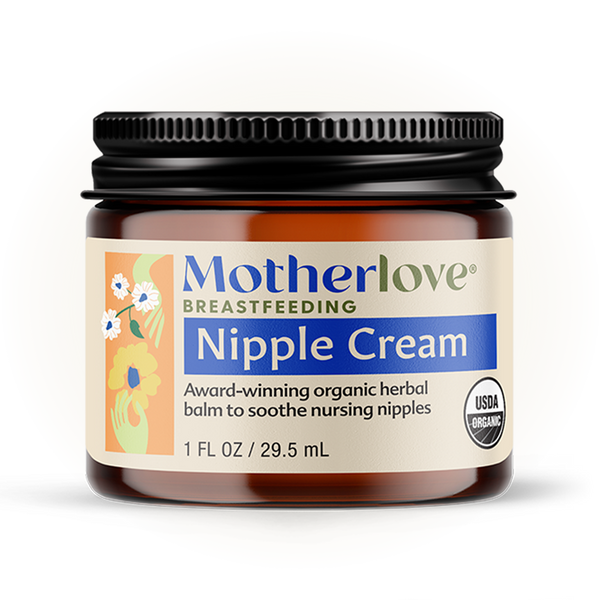Written by: Wendy, IBCLC
When it comes to breastfeeding challenges, experiencing a low milk supply can be devastating. But what many don’t realize is that having too much milk—usually referred to as oversupply or hyperlactation—can be a substantial breastfeeding struggle as well.
Parents who experience oversupply not only have an increased risk of engorgement and breast infections, but their babies can become very fussy and even reject the breast. Oversupply can be a factor in infant colic and is sometimes a reason for premature weaning.
WHAT IS OVERSUPPLY?
Oversupply is when you have much more milk than your baby needs, and this excess of milk causes issues with breastfeeding.
Most new breastfeeding mothers tend toward a bit of oversupply and engorgement in the first few weeks of breastfeeding, as their baby is regulating their supply. Oversupply is when this excess of milk endures and creates issues for breastfeeding mothers and their babies.
It’s important to understand that the symptoms of oversupply can overlap with other issues. For example, you can have a baby with gas and frothy poops without oversupply. You can be engorged or prone to mastitis without having oversupply, and your baby can be fussy and colicky without oversupply.
Usually, oversupply will be cited as a concern when several different symptoms pop up at once, and there are signs that you are producing much more milk than your baby needs. Although some cases of oversupply involve a baby who is of normal weight or even underweight, the majority of cases involve a baby who is gaining more than the average amount of weight from breastfeeding alone.
Other signs that you might have oversupply include:
- Your breasts feel full even after your baby is done nursing and seems satisfied
- Your baby has trouble dealing with your flow, often becoming fussy, pulling away, or even refusing the breast when your milk lets down
- Your baby coughs or chokes on your milk
- Your baby may slip off the breast or find it hard to latch when the breast is full or when the milk is flowing quickly
- Your baby may have digestive discomfort, including gas and spitting up
- Your baby may have frequent, loose poops, which may be green and frothy
- Your baby may pull off your nipples suddenly or clamp down during letdown, causing nipple damage
- You may feel frequently engorged, especially if you go longer than usual between breastfeeding sessions
- You may experience frequent plugged ducts or mastitis
HOW CAN YOU MANAGE OVERSUPPLY?
The good news is that, like a low milk supply, oversupply is something that can be managed, and you can go on to have a satisfying and much more comfortable breastfeeding experience. It may be hard to believe that when you are in the thick of it, but it’s true!
Before you work on managing your oversupply, it’s very important to be sure what you are dealing with is oversupply because some of the suggested methods will decrease your milk supply. You don’t want to do this unless you are actually overproducing.
So you want to make sure that your baby is gaining weight well on your milk alone and that you continue to have excess milk in your breasts even after they are done feeding. A lactation consultant or breastfeeding counselor can help you figure that out.
There are a couple of things you can start with that won’t excessively reduce your milk supply but can allow your baby to manage your milk supply more easily, and even regulate your milk supply to a more normal amount.
This includes:
Lean back while you are breastfeeding. Make sure you are not hunched over your baby while you nurse. Leaning back ensures that the milk won’t shoot down your baby’s throat and will allow them to more easily manage the flow.
Check your positioning. Make sure your baby’s head is tilted back a bit while nursing, with their chin gently touching your breast. Make sure they are belly to belly with you while feeding, and they have a strong seal on the breast.
Let your baby finish one breast before offering the other. This will allow them to regulate your supply more evenly and ensure that they are taking in more of your hindmilk—the fatty milk at the end of the feeding that is easier to digest.
If you are pumping, stop. If you have gotten in the habit of pumping after feedings, you should stop this, as this may be what is causing your oversupply. Again, though, this is only if you are already making enough milk for your baby through breastfeeding alone. Don’t stop pumping if you are regularly feeding your baby pumped bottles of milk because of separation or because they are relying on that for their feedings.
Feed more frequently. I know this sounds like weird advice! But actually, feeding more frequently means that your baby will take smaller, more manageable meals and won’t come to breasts that are quite as full. Don’t worry: this won’t mean that you will make more milk. If you continue feeding frequently and on-demand, your supply will even out.
WAYS TO DECREASE YOUR MILK SUPPLY
Sometimes it makes sense to take measures to decrease your supply. This is only a good idea if you are someone dealing with a large oversupply, and these things should always be done under the supervision of a lactation consultant, midwife, or breastfeeding-friendly pediatrician.
Options for this include:
Block Feeding. This is where you nurse from the same breast for several feedings in a row. Doing so can ensure that your baby gets that tummy-settling hindmilk, and it can also serve to gently down-regulate your milk supply. If your other breast gets full—which it probably will—you can hand express a little milk to soften your breast. However, don’t express too much from the other breast, or you will continue overproducing on that side.
Over-the-counter and prescription meds. Certain medications lower milk supply, and conservative usage of those can help decrease your milk supply if you are a major overproducer. The most frequently suggested medication is pseudoephedrine, a decongestant. Talk to your doctor before trying any medication to lower your milk supply.
Herbs and teas. Some herbs and teas are known to decrease milk supply. Sage is the most well-known herb to do this, and some breastfeeding parents drink sage tea in an effort to decrease their supply. Using herbs and teas to decrease supply is best done in collaboration with your lactation consultant, midwife, or doctor.
Where To Go From Here
Probably the most important thing to keep in mind when dealing with oversupply is that it’s a real problem! Yes, it’s a blessing to have an overabundance of milk, but that doesn’t mean it can’t cause significant hardships.
Remember that there is hope if you are dealing with oversupply. With a little help and a few simple techniques, you can get your supply to a more manageable place so that breastfeeding can be a more peaceful and comfortable experience for both you and your baby.





